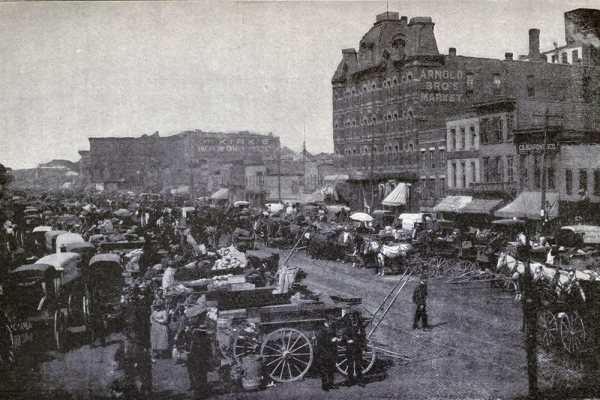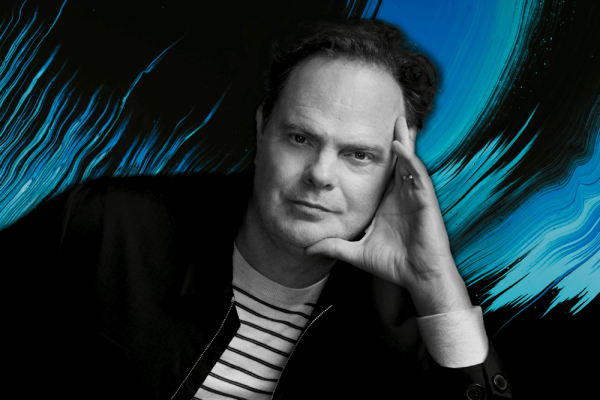Already this legislative session, the Texas Senate has approved bills that would require the Ten Commandments to be posted in all public school classrooms and allow unlicensed religious chaplains to supplant the role of school counselors. Meanwhile, there are numerous efforts to eliminate or weaken two state constitutional amendments that prohibit direct state support of religious schools and organizations, a key plank of the broader school-choice movement.
In a ceremony that CNN describes as “a symbolic coming together of the monarchy, church, and state for a religious ritual,” King Charles III will vow to uphold the law and the Church of England. Justin Welby, the Archbishop of Canterbury and leader of the global Anglican Communion, will then anoint Charles with oil and place a heavy crown on his head. The crowds surrounding Westminster Abbey will chant, “God save the king.”
Can blowing up a pipeline be a form of nonviolent protest? Director Daniel Goldhaber’s new film, How to Blow Up a Pipeline, makes a strong case in the affirmative — even if the activists at its center could care less about being called “terrorists” by the American empire.
It would appear that most people raised in the church do not, in fact, stay in the church.
In recent years, there’s been an uncomfortable shift in how the topics of marriage and families are being framed. Rather than simply acknowledging marriage and family as moral goods, children and families are frequently put forward as the solution for preserving Christianity amidst its perceived cultural decline.
In a nation built on white nationalism, keeping people fearful of the “other” is useful because it keeps up the illusion of law, order, and control — the foundations of white supremacy. Crime protection is now the dominant reason people own guns. Samuel Perry and Andrew Whitehead write in their book Taking America Back for God, that White Christian nationalists tend to want a strong military, capital punishment, and oppose gun control.
Yet again and again, Christians are commanded to welcome the stranger and be not afraid. “Do not neglect to show hospitality to strangers,” the author writes in Hebrews 13:2. “For by doing that some have entertained angels without knowing it.”
Historian Timothy E.W. Gloege explains in his book Guaranteed Pure that before the events of Haymarket, Christian evangelist Dwight L. Moody conspired with local capitalists such as Cyrus McCormick Jr., one of the managing partners of International Harvester Company, to thwart the 1886 strike altogether. Within the story of the Haymarket affair, we can find a number of political tensions that are still within Christianity today. One major tension still animating Christian discourse is this: What happens when Christians side with the wealthy instead of the poor and working class?
My early suspicion of Cone was reflexive. I had been formed in the intercessory prayer meetings of pious Afro-Caribbean Pentecostalism and naturalized in the halls of white evangelical academia during the so-called “post-racial” years of the Obama presidency. In those churches of my youth, racism was real, “but not nearly as bad as it had been in the past.”
Pope Francis, in a historic move that could lead to more inclusiveness in decision-making in the Roman Catholic Church, will allow women to vote for the first time at a global meeting of bishops in October. In the past, women were allowed to attend the synods, a papal advisory body, as auditors but with no right to vote.
Like many during the COVID-19 pandemic, I returned to The Office because I craved something familiar. Rewatching the show led me to this realization: The Office is the first TV series to portray the good, the bad, and the awkwardness of religion in a way that I relate to as a Christian.
I don’t know what shocked me more: The fact that actor Rainn Wilson — best known for his role as Dwight Schrute on the hit TV show The Office — had written a book about religion and spirituality or that I was able to interview him.
I am a millennial and for many of us, “spirituality” means being “spiritual but not religious.” I’ve heard my peers say things like, “I’m looking for spiritual healing,” or “I’m trying to find God for myself,” or “I’m wanting to get in touch with my own divinity,” or “I contain multitudes.” Perhaps there’s a kernel of truth in some of those statements but the thing that stands out to me is this: It kinda just comes off as individualism baptized in “holy” hyperbole.
What I appreciated about Wilson’s Soul Boom: Why We Need a Spiritual Revolution (out April 25) is that it offered a gentle critique of this version of individualized spirituality. For Wilson, who is a member of the Baha’i faith, spirituality has a larger purpose beyond the self. Spirituality gives us eyes to imagine a society based on “justice, equity, love, and a reduction in unnecessary pain for the inhabitants of our beautiful planet. To build the kingdom of God on Earth,” as he writes in the book. So, from this perspective, seeking inner peace should not only lead to spiritual tranquility but also public tranquility. If this is what pure and undefiled spirituality might look like, then color me intrigued.
Wilson and I talked about topics ranging from cultural appropriation and Christian representation in the media, to communism and how religion is portrayed in The Office. Considering all the topics touched on in Soul Boom, it only seemed right to cast a wide net during our conversation.









